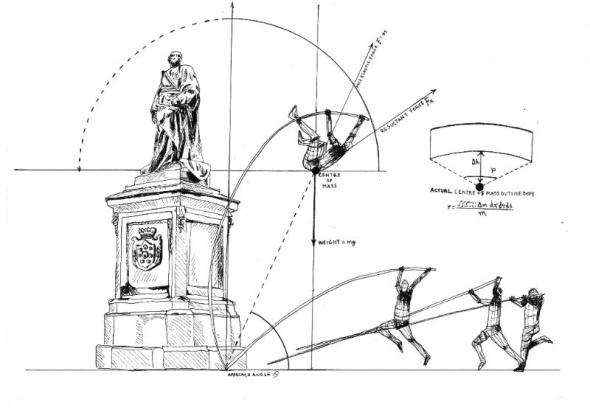“Discoveries” - colonialities of memory
If the “Museum of the Discoveries” suggested by the mayor of Lisbon, Fernando Medina, should ever come to exist – hopefully under a more adequate name – one of its showrooms, preferably the very first one, should be dedicated to a documentation of the controversy that has filled the pages of newspapers since the announcement of the project, after a large group of intellectuals and researchers took a public stand, contesting the orientation implicit in the name under proposal. The pedagogic import of such a documentation is unmistakeable. In fact, the controversy builds in itself an object with a huge museological significance, since it illustrates perfectly the who and to document critically those questions would be, namely, a way of avoiding the risk – inherent to the form of the “museum” – of offering a simply static vision of the past, above all if such a documentation could prove capable of providing an in-depth portrait of the processes of construction of a collective memory underlying the multitude of statements.
 from th serie Sporting Narratives | 2018 | Márcio Carvalho
from th serie Sporting Narratives | 2018 | Márcio Carvalho
Among the many commonplaces that have surfaced in the controversy, one of the most telling is, no doubt, the one which attributes criticism of the notion of the “Discoveries” to the anxiety of the “politically correct” nurtured by an “ignorant Left”. Under this perspective, academic qualifications and the intrinsic quality of the, individual or collective, interventions are of no import. Putting in question the dominant view, even when on the basis of sound historic argumentation, has to be labelled “ignorance”, because the mechanism of production of a conformist vision of the past demands it. Such an image, to be able to prevail, needs to disqualify alternative knowledges and different processes of memory. The underlying colonial unconscious may, thus, affirm itself as some kind of collective narcissism stuck to an image of exceptionality that is by definition impervious to criticism.
To expose this mechanism of production of coloniality becomes all the more important since the indignation of journalists, political commentators and the general public, with the exception of those instances of notorious bad faith or sheer ideological blindness, does not turn them automatically into dangerous people nostalgic of colonialism. The inability to realize the extent to which the proposed designation is liable to criticism (one of the reasons for this criticism being – as was rightly highlighted in the statement by a group a Portuguese men and women of African ancestry – its logics of exclusion, which leaves aside the perspective from “the other side”, the ever silenced subaltern side of the colonial relationship), has deep roots in an official, long consolidated memory.
To take as apparently incontestable facts that which is nothing else than the product of a memory construction makes part of the logics of the mechanism leading the shade of the colonial relationship to project itself onto the discursive and ideological formation that the late Aníbal Quijano, the Peruvian sociologist, has named coloniality. To take apart this mechanism – a process that requires time, a long time – would most certainly be one of the most relevant pedagogic functions to which the museum could aspire. Under this light, one of the most important discoveries to which the museum of the “Discoveries” could lead would, thus, be the perception that the uses of language are not innocent and the grammar of memory has always much more to do with the present than with the past – the perception, in short, that, in the whole controversy, what is at stake is not simply what we were, but, rather, what we are and, above all, what we want to be.
Article produced for project MEMOIRS – Children of Empire and European Postmemories, funded by the European Research Council (ERC) under the European Union’s Horizon 2020 research and innovation programme (grant agreement No 648624).